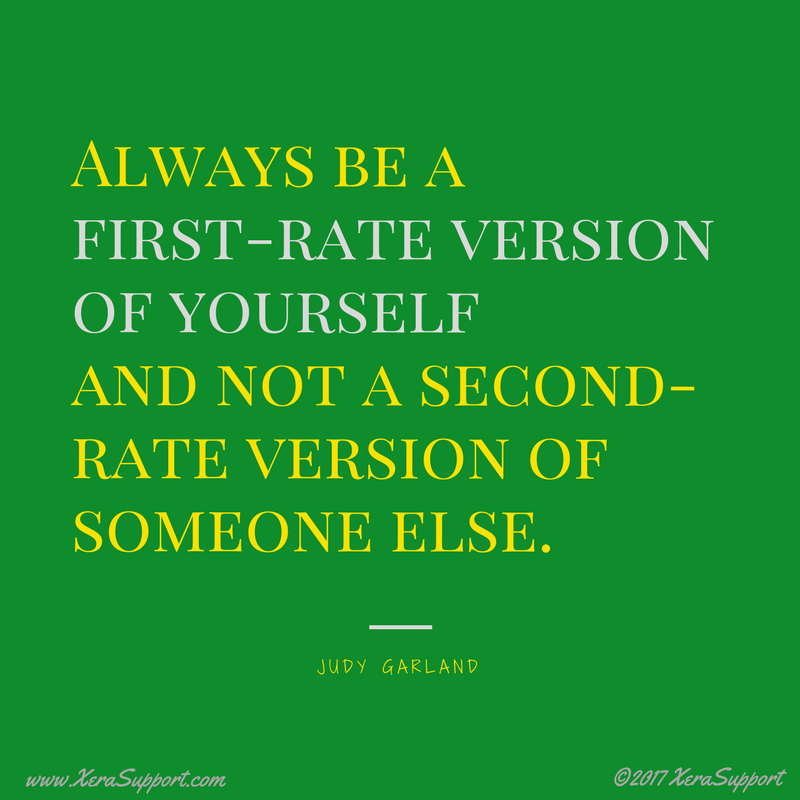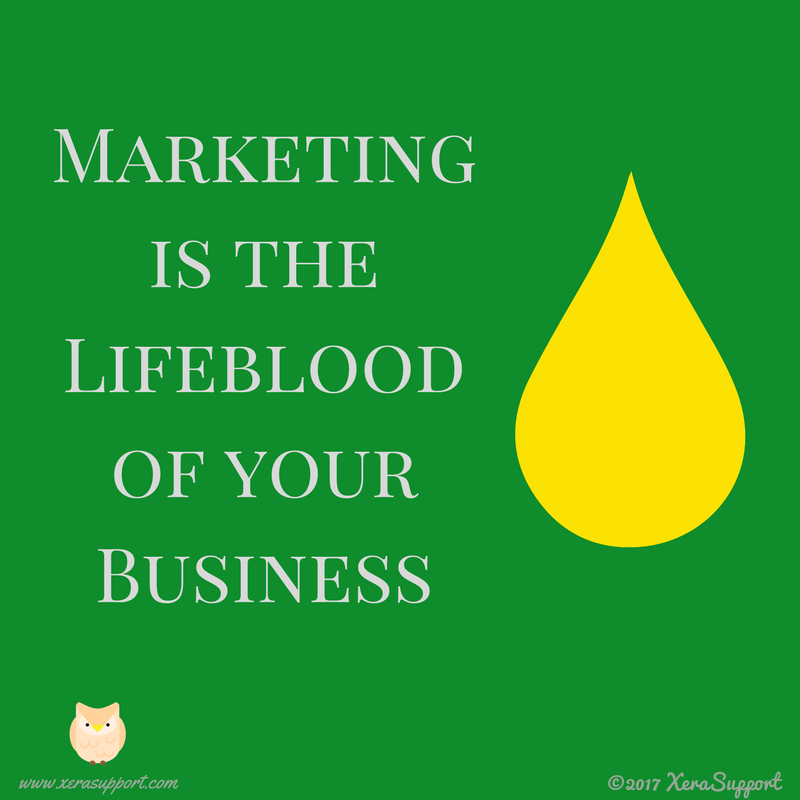
Business owners everywhere incorporate marketing tactics every week and every month to tell the world about their mission and their products or services. Without marketing, not a single soul would know you have a business, let alone want to make a purchase with you. So relationship marketing is a form of marketing that starts with genuine caring about people over profits.
Why You Need Relationship Marketing in Your Marketing Plan
Why? Because people purchase from those who they know, like, and trust. They want to know that you’re a real person with real feelings instead of someone who only cares about the almighty dollar. They want to know you’re not a scam artist who will steal their last dollar without providing a product. And they want to hear recommendations from others who have purchased before them to be sure your product delivered what it promised.
Relationship-based marketing gives you:
1. Visibility
In order to have a relationship with a single person or large audience, you need to interact with them. So get to know THEIR likes and dislikes, know what problems they are experiencing, and think about how you can help them solve their problem. In order to learn this information, you’ll be forced to be consistent with your interaction, whether on social media or in real life, naturally giving you more visibility.
2. Authority
So do you share your knowledge with your audience, or do you save that only for paying customers? Sharing your knowledge, practical experience, and even case studies for free will position you as a knowledgeable authority figure. As a result, you’ll be seen as an expert in your field who actually cares about helping others. Platforms such as social media, podcasts, YouTube videos, or writing an ebook or short reports are all ways to both increase your authority rank and your visibility.
3. A stellar reputation
Can you see how Visibility and Authority build on each other and lead to a Stellar Reputation? As you interact with people and become an authority figure, your audience will naturally form an opinion about you, as a result. And if you over-deliver with your products or your signature programs, your reputation will continue to shine. Overall, a stellar reputation will shorten the length of time it takes you to earn the trust of your audience or new followers. And trust is key to relationship marketing.
4. Happy and enthusiastic fans
You’ll know you’ve made it when fans are clamoring for your latest product and tell all their friends how wonderful you are! This is the ultimate result of relationship marketing and worth all the time and effort it takes to reach this destination.
One key to remember is to never stop the process of building relationships. Like gears in a clock, you must find a way to consistently interact, show your authority, improve your reputation and take care of your happy fans. Then keep these gears working to consistently grow your business for years to come.
Three Tips to Building Successful Business Relationships
If you’re the CEO of your business, you already encounter numerous relationships on a daily basis. For example, you have a relationship with your business vendors or partners, with your employees, with your customers, with your prospective customers, and with your local community. In fact, it’s nearly impossible to run any kind of profitable business without forming a variety of relationships.
1. Always Be Authentic
Have you heard the phrase, “Fake it till you make it”? Some believe that you need to replicate a certain style or mindset before you actually reach that level of success. But can you do that and still show your authentic self?
The truth is, people want to connect with you.
That means they want to know what your life is like. They want and need to relate to you on a personal level so that you become more real to them. If you are authentic with your image and what you post, as a result, they will give you their trust and, likely, their money.
But if you fake it too much or are caught in a lie on social media, your image can come crashing down. Instead of being a likeable coach, you’ll have a reputation as being a fake or not walking the walk. If you want to be trustworthy, you have to earn that trust. So by building your relationships based on integrity and honesty, you connect with your audience on a deeper level.

2. Listen Carefully
When building these relationships, remember that you are not the center of the universe. Even though you ultimately want people to purchase from you, new prospects will be leery of you until they get to know you. So preparing a sales pitch for any kind of networking event is a fruitless effort that will likely make people run from you.
Instead, show an interest in THEIR business or THEIR life.
Once you ask one question, people naturally want to keep talking, especially if they are passionate about their industry and mission. Listen to them speak, tuck away interesting nuggets for a later time, and remember to send a follow up email the next business day, simply commenting how nice it was to meet them. At the next event, make a point of acknowledging them and start a new conversation.
This also applies to coaches who create products. Listen to what your audience wants and needs. What are they struggling with right now and how can you help them? Listening is a very important skill when it comes to business relationships as well as creating loyal customers.
3. Share, Share, Share
Don’t misunderstand here. We don’t mean oversharing. For instance, no one needs to know the graphic details of your last night out. Getting too personal can not only be a turn-off, it can also put you and your loved ones at risk! So be careful about what you’re sharing.
When we recommend increasing your sharing, we mean sharing things that will help your audience. This simply means keep sharing your knowledge, resources, free articles, and ebook chapters, for example. Or you can share anything that will be of value to your audience.
By sharing information, you are building yourself up as an authority in that area of expertise and also showing what a kind and generous person you are. And that helps you emotionally connect with your audience! So it’s part of good branding as well as developing your relationship with your target market.

How Often Does Your Audience REALLY Want to Hear from You?
When it comes to relationship marketing, a certain amount of interaction is vitally important. But is there such a thing as TOO much interaction?
Let’s compare three different scenarios and audiences.
Almost everyone has a long lost cousin, friend, or acquaintance who you only hear from once a year in the form of a holiday card. Sure, it’s nice that they reached out, but communicating just once a year doesn’t give you a chance to stay up to date with their family news.
Only when they need something..
Then you have your college roommate, who lives out of state but you only hear from him/her when there’s drama in their life or they need to vent about something. These are the people who are in touch more frequently than your cousin, but only when they need something – not because they have an interest in what is happening in your life.
And lastly, you have the mother who dropped off her 18-year-old daughter at college for the first time and who texts and/or calls every day, just to check on how things are going. Did you get to class on time? How’s the food at the dining hall? Do you like your roommates? What do you mean your books cost $800? And do you want us to come visit for Parents’ Weekend?
Each of these real-life scenarios can translate to a business situation.
Small business owners or solopreneurs who don’t create and/or use their email list to communicate with their past customers more than once a year won’t create name recognition among their customers. They run the high risk of getting their emails deleted or marked as spam. One possible exception: seasonal businesses.
Profit focused or relationship focused?
Business owners who only use their social media accounts or email accounts to promote their products and sales are only interested in making money from their audience. They don’t necessarily care about what their followers need at that moment in time. One possible exception: big box stores who offer coupons and other discounts.
Internet marketers and big box stores or companies who email every single day run the risk of annoying their audience and causing people to unsubscribe from their lists. One possible exception: business owners who follow leaders in their industry or who look forward to daily tips and/or affirmations from these leaders.
You have to know your audience.
The bottom line is: you must know your market to know how often you should interact with them to build a solid relationship. There are always exceptions to every rule, and even within the same industries different businesses will experience different responses to their communications tactics. Research your market, understand their pain points, and create a solution for them.
Like this? Pin it!


I’m not so good with this, and honestly, don’t even really know how to start. If I had the money for it I’d pay someone to do it for me….